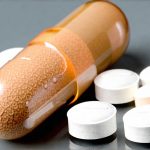Bladder infections, often referred to as cystitis, are incredibly common, particularly among women due to anatomical differences. They can range from mildly uncomfortable to severely debilitating, causing pain, urgency, and frequency in urination, sometimes even accompanied by blood in the urine. While antibiotics are typically prescribed to treat the infection itself, the period following treatment is crucial for full recovery and preventing recurrence. Many women unknowingly engage in behaviors that inadvertently hinder healing or set the stage for another infection, making it essential to understand what to avoid during this vulnerable time. This isn’t about restriction so much as mindful self-care; supporting your body’s natural defenses and allowing it the space to heal is paramount.
The discomfort of a bladder infection can be overwhelming, leading many to seek quick fixes or assume everything is back to normal once antibiotic treatment ends. However, the urinary tract is sensitive, and recovery doesn’t happen instantaneously. Ignoring potential irritants or reverting to habits that might have contributed to the initial infection can easily lead to a relapse. Understanding how your body responds during this post-infection phase—and proactively adjusting lifestyle factors accordingly—is key to long-term urinary health and minimizing future discomfort. This article will explore specific things women should avoid after a bladder infection, focusing on practices that can hinder healing or increase the risk of recurrence, aiming to empower you with knowledge for a smoother recovery.
Dietary Considerations & Irritants
The foods and beverages we consume play a significant role in urinary tract health, both during and after an infection. While it’s not necessarily about eliminating entire food groups, being mindful of potential irritants is vital. Certain substances can exacerbate inflammation within the bladder, leading to increased discomfort and potentially mimicking infection symptoms even after treatment has successfully cleared the bacteria. It’s important to remember that individual sensitivities vary; what bothers one woman might not affect another. However, there are some common culprits to be aware of.
- Caffeine: Found in coffee, tea, and many sodas, caffeine is a known bladder irritant for many people. It can increase urgency and frequency, making it difficult to distinguish between residual discomfort from the infection and actual irritation.
- Alcohol: Similar to caffeine, alcohol has diuretic properties and can irritate the bladder lining. Avoid alcoholic beverages until you’re confident your urinary tract has fully recovered.
- Spicy Foods: While enjoyable for some, spicy foods can cause inflammation and exacerbate symptoms in sensitive individuals. Consider temporarily reducing or eliminating spicy dishes from your diet.
- Acidic Fruits & Juices: Citrus fruits (oranges, grapefruit, lemons) and juices, as well as tomato-based products, are acidic and can irritate the bladder. Moderation is key, but avoiding them initially post-infection might be helpful.
Beyond specific irritants, staying adequately hydrated is absolutely critical. Water helps flush out any remaining bacteria and supports overall urinary tract health. Aim for eight glasses of water daily, or even more if you’re physically active. The goal isn’t just hydration; it’s dilution, helping to minimize irritation and support natural cleansing processes.
Lifestyle Factors & Habits to Modify
Beyond dietary changes, several lifestyle factors can significantly impact recovery from a bladder infection. These often relate to hygiene practices, clothing choices, and even sexual activity – all areas that can directly affect the urinary tract’s vulnerability. Ignoring these aspects can inadvertently create conditions favorable for recurrence, undoing the benefits of antibiotic treatment. It is important to be proactive in creating healthy habits.
Proper hygiene is paramount. Wiping from front to back after using the restroom prevents bacteria from the digestive system from migrating to the urethra. Avoiding douching and scented feminine hygiene products is also crucial, as these can disrupt the natural bacterial balance of the vagina, increasing the risk of infection. Tight-fitting clothing, particularly underwear made from synthetic materials like nylon, traps moisture and creates a breeding ground for bacteria. Opt for breathable cotton underwear and looser-fitting clothes whenever possible. Finally, sexual activity can sometimes introduce bacteria into the urethra, so it’s advisable to urinate shortly before and after intercourse to help flush out any potential pathogens.
Avoiding Prolonged Sitting & Constipation
Prolonged sitting can put pressure on the bladder and urinary tract, potentially hindering circulation and promoting bacterial growth. If your job requires extended periods of sitting, make a conscious effort to get up and move around every hour. Simple stretches and short walks can significantly improve circulation and reduce pressure. Regular movement is essential for overall health but particularly beneficial during post-infection recovery.
Constipation also plays a surprising role in urinary tract health. A full bowel puts pressure on the bladder, making it difficult to empty completely. This residual urine can become a breeding ground for bacteria. Incorporating fiber-rich foods into your diet and staying adequately hydrated can help prevent constipation. If you’re struggling with constipation, consult with your doctor about safe and effective remedies.
The Role of Stress & Immune Support
Chronic stress weakens the immune system, making you more susceptible to infections—including bladder infections. Finding healthy ways to manage stress is vital for overall health and recovery. Techniques like yoga, meditation, deep breathing exercises, or simply spending time in nature can help reduce stress levels and boost your immune system. Don’t underestimate the power of mindful relaxation.
Supporting your immune system through proper nutrition and adequate sleep is also crucial. A diet rich in vitamins and minerals provides your body with the resources it needs to fight off infection. Aim for at least seven to eight hours of quality sleep each night, as this allows your body to repair and rejuvenate itself. Consider incorporating foods known to boost immunity, such as citrus fruits (in moderation if they don’t irritate your bladder), yogurt (with live cultures), and garlic.
Recognizing Recurrence & When to Seek Medical Attention
It’s essential to differentiate between lingering discomfort after treatment and the signs of a recurrent infection. Some mild irritation is normal for several days or even weeks after completing antibiotics, but if symptoms worsen or new symptoms appear, it’s crucial to seek medical attention promptly. Don’t self-diagnose or attempt to treat a potential recurrence on your own.
Signs that warrant a doctor’s visit include: – Fever – Chills – Back pain – Nausea/Vomiting – Increased frequency and urgency – Blood in the urine (even if it was previously clear) – A persistent burning sensation during urination. Early intervention is key to preventing more serious complications, such as kidney infection. Your healthcare provider can determine if a new antibiotic course is necessary or if further investigation is required to identify underlying causes of recurrent infections. If you have experienced a severe UTI, it’s even more important to be vigilant.
Disclaimer: This article provides general information and should not be considered medical advice. Always consult with your healthcare provider for diagnosis and treatment of any health condition.





















